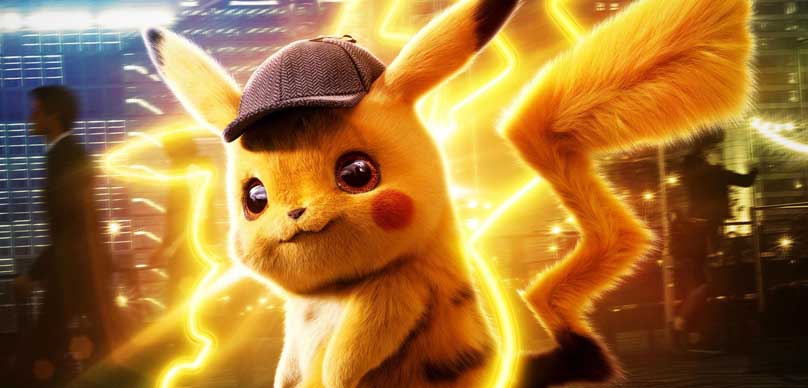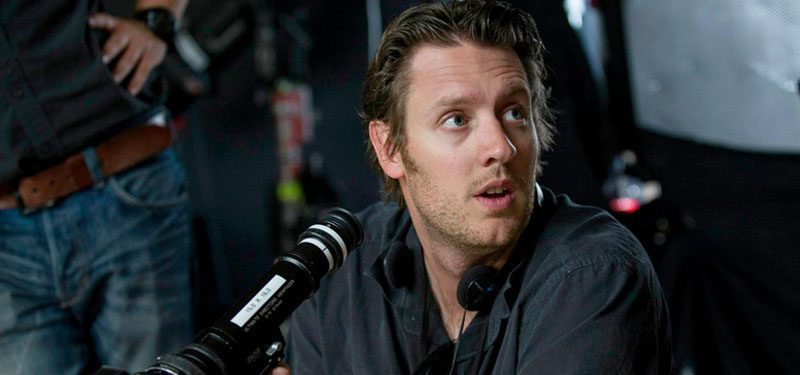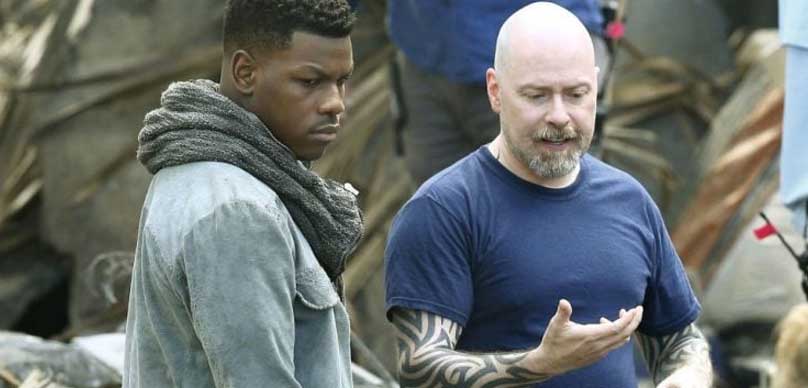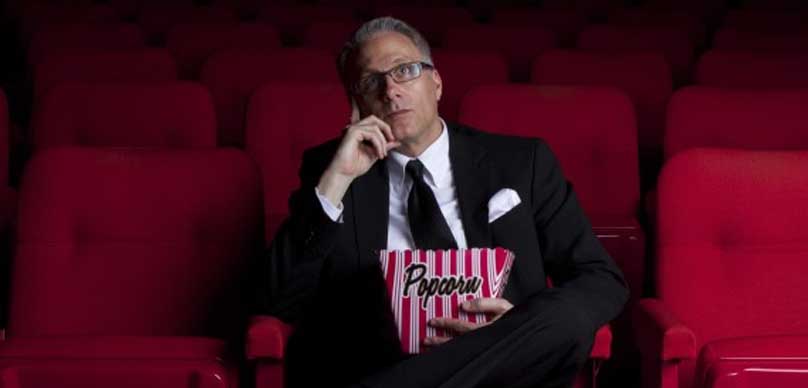Behind every great television or streaming show, show lives a showrunner running the creative and business journey. Below are some of the top showrunners working in television. In these interviews, they discuss how they got their start, what they look for in a writer for their writer’s room, and how to navigate the politics of television and imposter syndrome. If you want to work as a writer in television, then these conversations are must listen to. Enjoy!
David Chase (Showrunner of The Sopranos)
The legacy of the crime drama television series, The Sopranos, remains a defining art of storytelling for mob TV shows. We have the genius behind this hit TV series, David Chase as our guest today.
As expected, Chase is a twenty-five-time Emmy Awards-winner, seven times Golden Globes winner, and highly acclaimed producer, writer, and director. His forty-year career in Hollywood has contributed immensely to the experience of quality TV.
Before getting into the nitty-gritty of Chase, let’s do a brief of the HBO 1999 hit show, The Sopranos: Produced by HBO, Chase Films, and Brad Grey Television, the story ran for six seasons, revolving around Tony Soprano, played by James Gandolfini, a New Jersey-based Italian-American mobster, portraying the difficulties that he faces as he tries to balance his family life with his role as the leader of a criminal organization.
Marta Kauffman (Showrunner of Friends, Gracie and Frankie)
Marta Kauffman is an Emmy- and Golden Globe-winning television writer, producer and showrunner behind the hit series Friends and Grace & Frankie. After graduating from Brandeis University, Kauffman got her big break alongside David Crane when their pilots Dream On (1990) and The Powers That Be (1992) were greenlit. The pair then launched Bright/Kauffman/Crane Productions with Kevin Bright and became the trio that created the iconic sitcom Friends.
He next project, Grace & Frankie, starring Jane Fonda, Lily Tomlin, Martin Sheen, and Sam Waterston premiered on Netflix in 2015 and is Netflix’s longest-running original ever. The series has received multiple Emmy and SAG nominations and is premiering the final episodes of its seventh and last season later this year. In 2018, the company produced the documentary Seeing Allred, which premiered at the 2018 Sundance Film Festival and is currently available on Netflix.
Danny Strong (Showrunner of Empire, Dopestick)
Danny started his career as an actor in numerous classic films and TV shows such as Buffy The Vampire Slayer and Gilmore Girls, then transitioned into screenwriting, exploding onto the scene with his 2007 script Recount which was #1 on the Hollywood Blacklist and became an award winning HBO Film.
Since then he has become a prolific film and TV writer, director and producer, garnering numerous awards for various projects, including two Emmys, a Golden Globe, two WGA awards, a PGA Award, and the Peabody Award.
Through out his career he has shown a wide range and versatility moving between mediums and genres with films like the political docudramas Recount and Game Change, the civil rights epic The Butler and the big budget action blockbusters Hunger Games: Mockingjay (Part I and II).
He co-created the smash hit TV show Empire which won him the NAACP Image Award and he produced the civil rights drama The Best of Enemies starring Taraji P. Henson and Sam Rockwell. He has also written numerous theater projects having made his theatrical debut with a new book to the musical Chess that premiered at the Kennedy Center.
Steven Kane (Showrunner of The Last Ship, Halo)
Steven Kane got his start in the entertainment industry writing and directing independent film and theater. His first feature film, The Doghouse, won Best Director at the NY Indy Film Festival. His collection of One Act plays, Out of Your Mind, had a successful run in Los Angeles at the GuerriLA Theater.
His television credits as a writer and producer include The Closer (for which he received an Edgar Nomination), Major Crimes, Alias, NCIS, and Without a Trace, as well as comedies American Dad and Curb Your Enthusiasm. From 2012-2018, he served as Creator, Executive Producer, and show runner of TNT’s The Last Ship, a post-apocalyptic drama based on William Brinkley’s novel of the same name.
In 2019, it was announced that Steven would join the HALO series at Showtime as Showrunner, Head Writer, and Executive Producer.
Daniel Knauf (Showrunner of Carnivale, The Blacklist)
Daniel Knauf had a couple of small credits to his name—a TV movie here, a stint on Wolf Lake there—when he managed to sell the intricate Great Depression-era genre show Carnivale to HBO.
The series, an intricate blend of meticulously researched period detail and secret-history fantasy, purported to tell the tale of what happened when the last two “Avatars”—superpowered beings of light and darkness—met in the United States on the eve of World War II. The series attracted a cult audience that remains devoted to this day, but a mass audience wasn’t sure what to make of the program, and HBO canceled it after two seasons, saying the show’s story was finished, in spite of Knauf’s plan for a six-season run.
Edward Zwick (Showrunner of Thirtysomething)
We have been on a major roll lately on the podcast and this episode keep that going in a big way. Our guest on the show today is writer, producer, and director Edward Zwick. Edward made his big shift from his childhood passion of theater to filmmaking after working as a PA for Woody Allenin France on the set of Love and Death. He then moved to California in the summer of 1976 and has since forged a respected name for himself in Hollywood.
Edward Zwick is a multiple Academy Award, Golden Globes, and BAFTA award-winning director, writer, and producer.
Marshall Herskovitz (Showrunner of Nashville)
Our guest today is producer, director and screenwriter Marshall Herskovitz. Many of his production projects have been in partnership with his long-time filmmaking collaborator, Edward Zwick whose films, he’s produced and written half of. Their decades-long filmmaking partnership was launched as co-creators of the 1987 TV show, ThirtySomething.
Now, Marshall had already written for the TV show, Family, in 1976. So his understanding of TV was pivotal in the success of ThirtySomething.
Other projects he’s credited for executive producing or creating include Traffic (2000), The Last Samurai (2003), Nashville (TV show 2016), Blood Diamond, and Women Walks Ahead(2017), starring the incomparable, Jessica Chastain.
Steve DeKnight (Showrunner of Marvel’s Daredevil, Spartacus)
Showrunning is a mysterious art form to many so I wanted to bringing he someone who can shine a light on what it takes to be one. Today on the show we have powerhouse show runner, writer, director, producer, and all-around good guy Steven DeKnight. Best known for his work across the action, drama, and sci-fi genres on TV shows like Smallville, Spartacus, Daredevil, Buffy the Vampire Slayer, Angel, and Jupiter’s Legacy.
Realizing his strengths early on in his career, Steven is a jack-of-all-trades who studied acting at the onset of film school transitioned through to writing, playwright, and screenwriting. Buffy the Vampire Slayer was his big break – starting off as writer and story editor on the show, DeKnight went on to produce 42 episodes of the Spin-off show, Angel.
Mick Garris (Showrunner of Masters of Horror, Fear Itself)
I am extremely excited to have on the show today a fellow podcaster, established producer, director, and writer, Mick Garris. Mick’s podcast, Post Mortem with Mick Garris, dives deep into the devious minds of the greatest filmmakers and creators of your worst nightmares to bring their distinctive visions to life in fascinating one-on-one conversations.
He’s renowned for his classic screen adaptation of Stephen King’s books like Sleepwalkers (1992), The Shinning and The Stand. and creator of 2005, Masters of Horror series.
Edward Burns (Showrunner of Public Morals, Bridge and Tunnel)
Today’s guest is a writer, director, producer, actor, and indie filmmaking legend, Edward Burns. Many of you might have heard of the Sundance Film Festival-winning film called The Brothers McMullen, his iconic first film that tells the story of three Irish Catholic brothers from Long Island who struggle to deal with love, marriage, and infidelity. His Cinderella story of making the film, getting into Sundance, and launching his career is the stuff of legend.
Ed jumped into television with the Spielberg-produced TNT drama Public Morals, where he wrote, directed, and starred in every episode.
Set in the early 1960s in New York City’s Public Morals Division, where cops walk the line between morality and criminality as the temptations that come from dealing with all kinds of vice can get the better of them.
His latest project is EPIX’s Bridge and Tunnel is a dramedy series set in 1980 that revolves around a group of recent college grads setting out to pursue their dreams in Manhattan while still clinging to the familiarity of their working-class Long Island hometown. He also pulls writing, producing, and directing duties for all the episodes.
VJ Boyd (Showrunner Lincoln Rhyme: Hunt for the Bone Collector)
Today on the show we have television writer and showrunner VJ Boyd. VJ is a producer and writer, best known for his work on the critically acclaimed Justified (2010), the CBS smash hit S.W.A.T. (2017) and creator of Lincoln Rhyme: Hunt for the Bone Collector (2020).
Barry Sonnenfeld (Showrunner of Lemony Snicket’s A Series of Unfortunate Events)
Lemony Snicket’s A Series of Unfortunate Events, or simply A Series of Unfortunate Events, sometimes also shortened to just ASOUE, is an American black comedy-drama streaming television series from Netflix, developed by Mark Hudis and Barry Sonnenfeld, based on Lemony Snicket’s children’s novel series of the same name.
Michael Jamin (Showrunner of Glenn Martin DDS, Maron, and Rhett & Link’s Buddy System)
Today on the show we have writer and showrunner Michael Jamin. Michael has been writing for television since 1996. His many credits include Just Shoot Me, King of the Hill, Beavis & Butthead, Wilfred, Out of Practice, Rules of Engagement, Lopez and Tacoma FD.
He’s also served as Executive Producer/Showrunner on Glenn Martin DDS, Maron, and Rhett & Link’s Buddy System. Michael currently lives in Los Angeles where he’s working on a collection of personal essays to be released in 2020.
Erik Bork (Band of Brothers, From Earth to the Moon)
Today on the show we have screenwriter and producer Erik Bork. Erik Bork is a screenwriter best known for his work on the HBO miniseries Band of Brothers, From the Earth to the Moon, for which he wrote multiple episodes, and won two Emmy and two Golden Globe Awards as part of the producing team.
Erik has also sold series pitches (and written pilots) at NBC and FOX, worked on the writing staff for two primetime dramas, and written feature screenplays on assignment for companies like Universal, HBO, TNT, and Playtone. He teaches screenwriting for UCLA Extension, National University, and The Writers Store, and offers one-on-one consulting to writers.











